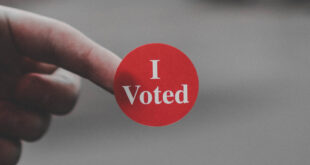 There was a time when New Zealand was predominantly made of just two cultures – Maori and European. We were bicultural and we took faltering first steps to make it work.
There was a time when New Zealand was predominantly made of just two cultures – Maori and European. We were bicultural and we took faltering first steps to make it work.
But bicultural is not who we are any more. Who we are is a nation of peoples from all over the globe. Maori. Europe. Asia. Africa. The Pacific Islands. Australia. The Americas.
We all call New Zealand home – the place where we raise our families, where we watch our kids play sport, where we work and vote and try our best to do right by each other.
New Zealand is our country. We are a multicultural nation of equals.
But are we stuck in the past?
How do we honour New Zealand’s historical past without being continually defined by it?
How do we shape a better future?
There are no easy answers. But fundamentally, we must live by the principle of equality that underpins all human rights and underlies the Treaty of Waitangi: “he iwi tahi tatou – we are now one people.”
New Zealand’s Parliament contains a number of seats reserved especially for people of Maori descent. These seats guaranteed Maori a direct voice in Parliament.
The Maori seats were first introduced in 1867 and for good reasons. Despite the Treaty promising full equality in terms of the rights, privileges and duties of citizenship, the land ownership requirements of the day denied many men – both Maori and European – the right to vote.
To address this, protected Maori seats were created as a temporary measure to give Parliamentary representation to Maori men until they were able to vote on the common roll.
Although full voting rights for men were granted in 1879 and for women in 1893 – giving all New Zealanders of age equal rights to vote – the reserved Maori seats were retained.
This continues even though Maori representation in Parliament now disproportionately exceeds their relative national population.
As a result, the seats that once preserved equality are now a form of discrimination based on race. By reserving this privilege for Maori alone, it suggests that one race is worthy of more consideration than all the others.
As New Zealanders, do we truly believe this is right?
To ensure that our Parliamentary system provides fair and effective representation for all New Zealanders, the 1986 Royal Commission on the Electoral System made a series of recommendations.
In their report “Towards a Better Democracy” the Commission recommended our First Past the Post voting system be replaced with Mixed-Member Proportional representation, or MMP.
They also proposed that the Maori seats and the Maori electoral roll be abolished on the basis that separatism is not the answer to Maori advancement. Equality is.
Their recommendation was ignored.
The time has come to reshape things to reflect the many races-one people-all equal nature of our nation. If we want that change, one common electoral roll for all is an essential starting point.
To move forward, we must convince our politicians that during the next term of Parliament, a law change is needed to abolish the Maori seats and establish a common electoral roll. The process must involve every voter – not just those who enjoy the present constitutional privilege.
Will the new government do it?
Only if enough New Zealanders convince the politicians that doing so is in the best interests of the country, and that our future must be ‘One people. One nation. Together’.
If you agree, there are three things you can do.
Firstly, contact MPs and candidates and ask if they will support the change to a common roll. Ask for their party’s commitment to abolishing the Maori seats, with all New Zealanders involved in the process.
Secondly, share this call to action with your friends and ask for their support for our campaign for change.
Thirdly, and most importantly, send a donation so we can publish this message throughout the country.
Dr Muriel Newman is a GrownUps columnist. This article was first published in the New Zealand Centre for Politicial Research newsletter. it represents her personal views.









- 10 years ago
Until Maori are no longer over represented in the prison population and by heart disease, poverty and family violence, I believe the system should stay as it is with Maori seats. At least they are guaranteed a voice at national level. The race is not yet equal with non Maori, not with the current sad state of affairs.